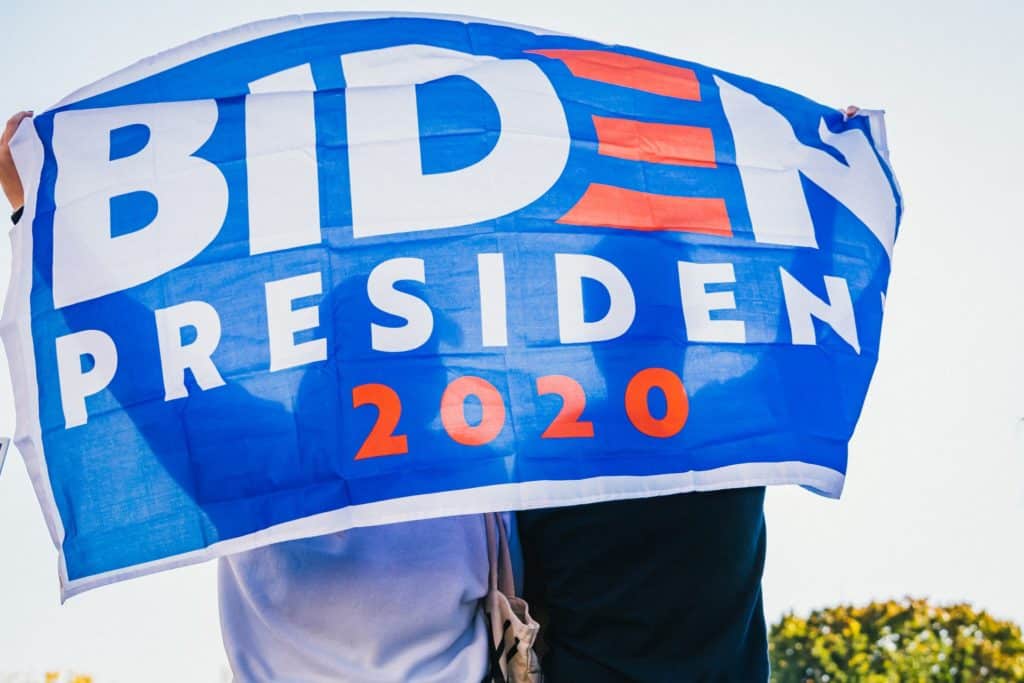It is no secret that President Joe Biden continues to oppose cannabis legalization. And while Biden’s Democratic ticket may have taken the audacious move to oppose legalization reform based on their estimation that it would help their chances of winning the 2020 campaign, new insights suggest the decision may have had some racial underpinnings as well.
As the first African American elected to Linn County Board of Supervisors in Iowa, and as someone commissioned to be a part of a joint task force to advise Biden’s criminal justice platform prior to his formal nomination last summer, Stacey Walker has had first hand knowledge of Biden’s views on marijuana legalization. In a newly disclosed video, Walker talks about how then-candidate Biden “was really concerned about how [supporting legalization] could have impacted the outcome of the election.”
In the video, Walker, who prior to joining the task force was an Iowa co-chair for Sen. Bernie Sanders (I-VT) presidential bid, describes how many of the panel members were “armed with polling data that suggested that a majority of Americans were in favor” of legalization. Yet, the Biden campaign had differing views.
“I think there was a political calculation there being made [by the Biden team] that working class people didn’t want to deal in these issues of cannabis legalization because, for far too long, people have made a link between cannabis legalization and black folks.”
In his interview with former Sanders campaign manager Faiz Shakir, Walker goes on to say, “President Biden wanted to commit more study to this before making a decision…But we know that the longer we wait on taking meaningful action at the federal level, the more people we’re going to lock up, the more lives we’re going to ruin, the more we’re going to perpetuate the disturbingly unfair war on drugs.”
Concerns Marijuana Legalization Would Lead to Trump Victory
In the video released by the media outlet More Perfect Union, Stacey Walker states that Biden’s team “was potentially concerned about the political effects that it might have with their own constituency and maybe costing them some votes in key battleground states, rather than actually winning them votes as we believed would occur and mobilizing a hell of a lot of people around the issue.” Walker concludes, “That was the exact conversation, if you want to be real.”
So why are these acknowledgements from someone with explicit insight in the Biden-Sanders task force, which concluded that the candidate running against Donald Trump in the 2020 election should not endorse a pro-legalization position, so profound?
Walker’s interview suggests that Biden’s team may have misjudged who their supporters are and subsequently what their constituency stands for. And the “political calculation” that Biden maintained in order to justify opposition to reform cannabis laws stands in direct contradiction to current research on the issue.
Given that the disproportionate enforcement of drug policies on BIPOC in America is rooted in racism, advocates for marijuana legalization are quick to point out the links between an end to prohibition and the improvement of societal inequities many communities have faced. But Biden’s presidential campaign suggesting support for legalization would sway “working class” people to vote Republican because of a false correlation between black people and reforming drug laws, demonstrates political aloofness to the popular, and steadily pervasive, bipartisanship on this issue.
This was evident in many state elections in November, with voters overwhelmingly approving initiatives to legalize cannabis either for medical or recreational use. In fact, battleground states like Arizona, but also more conservative states like Montana and South Dakota, saw legalization measures pass.
Biden on Marijuana Legalization
Nevertheless, Biden’s position remains the same. He continues to support more moderate reforms such as legalizing cannabis for medical use, decriminalizing possession of small amounts, expunging criminal records of people convicted of marijuana-related crimes, rescheduling marijuana to a Schedule II drug as well as allowing states to set their own policies on cannabis.
And while Biden’s administration has faced scrutiny for policy views on legalization, now they have come under fire from reform advocates again after a new report by The Daily Beast on Thursday suggested that many White House staff were either fired, suspended, or moved to a remote work program after disclosing that they had used marijuana in the past. Rep. Earl Blumenauer (D-OR) described the move as an “antiquated response” by the federal government.
Also criticizing the decision by the government, Walker in a tweet on Friday said:
“I’m gonna go out on a limb here and guess that if Mr. Biden held his top advisors to this standard on whether or not they’ve used marijuana in the past, he would have almost no top advisors,” he said. “Also cannabis should be legalized. I can’t believe this is still up for debate.”
Additional Resources:
At The Weed Blog, we strive to produce the latest online news resources regarding marijuana. We also review various strains of cannabis or other edible counterparts. We are committed to helping you find valuable information about marijuana on our website. With marijuana laws constantly changing, learn from us what you can do to promote activism in your area. Otherwise, consider these other top-tier articles regarding cannabis:
Biden White House Asks Staffers To Resign Over Past Marijuana Use
Biden-Sanders’ Unity Task Forces Avoid Recommending Marijuana Legalization
Senator Gets Marijuana Commitment From Biden’s Small Business Administration Nominee





